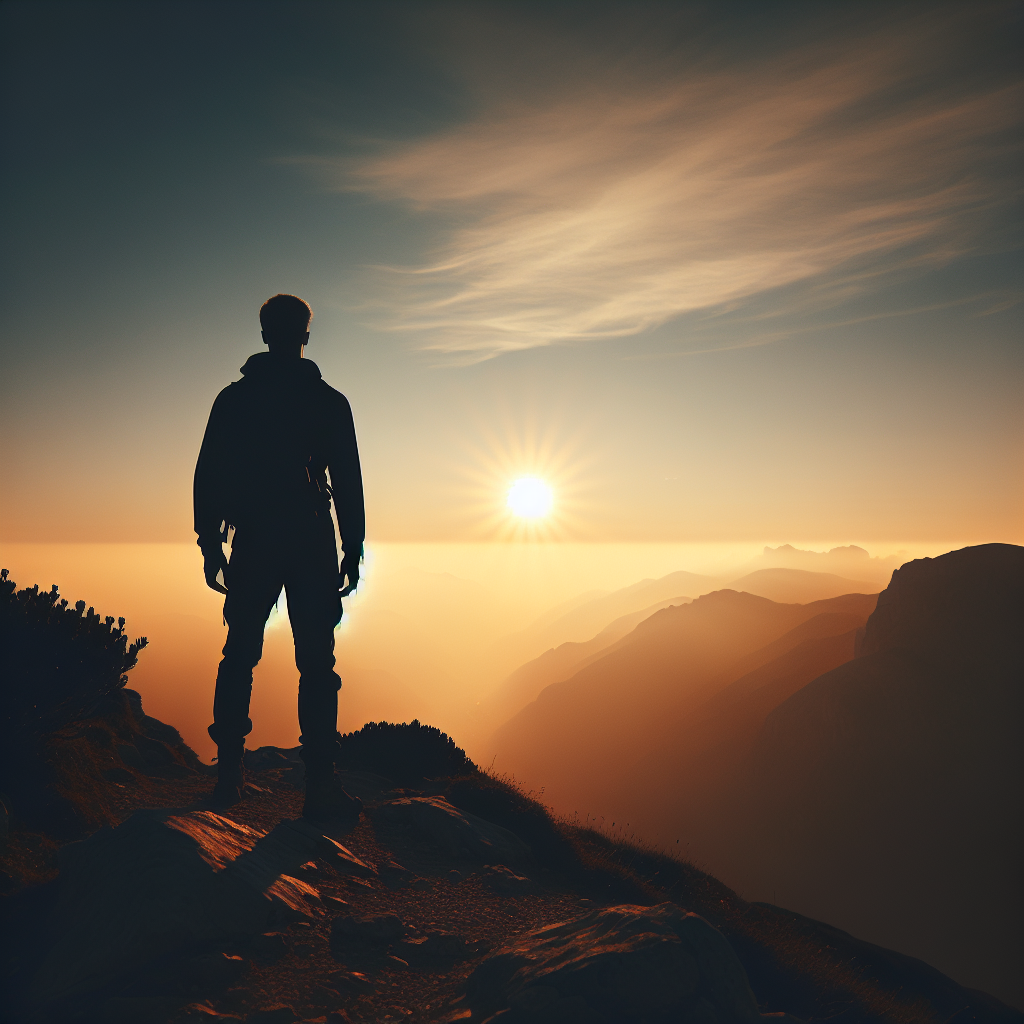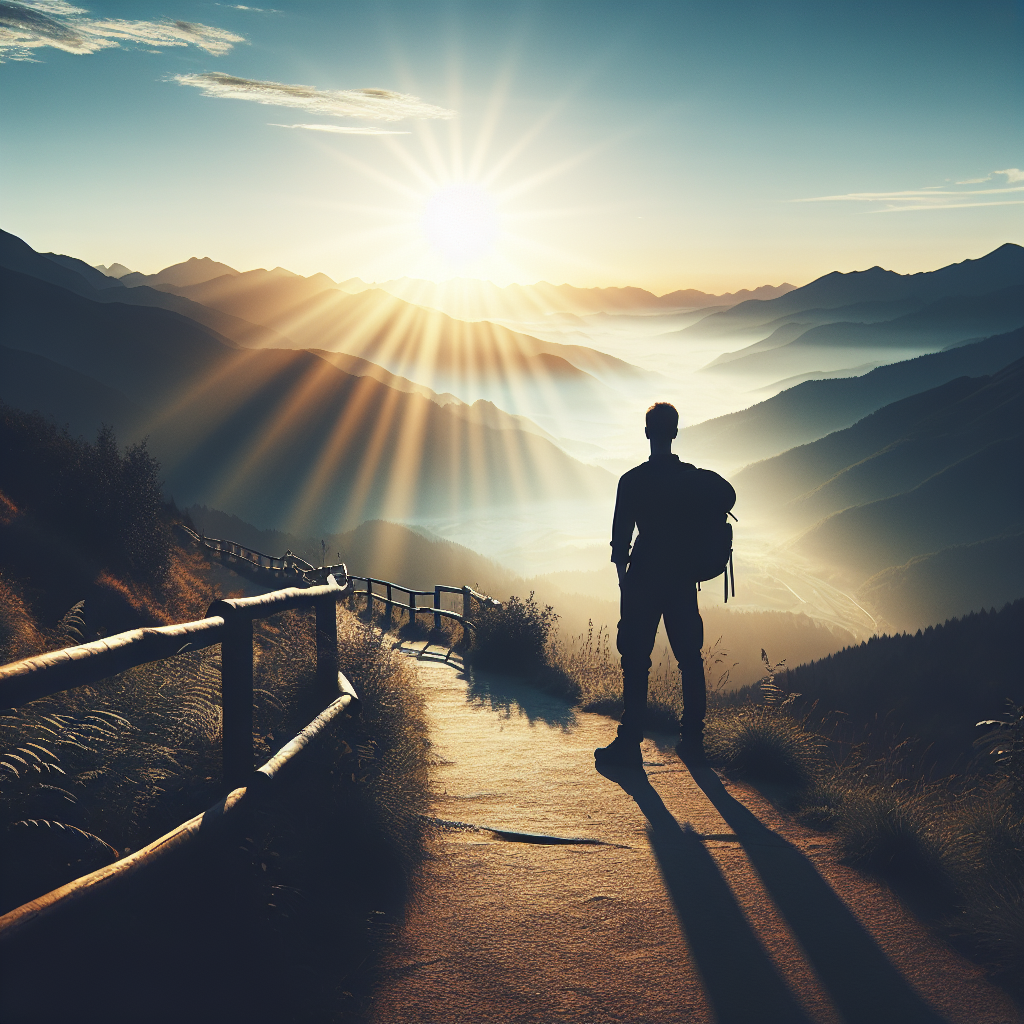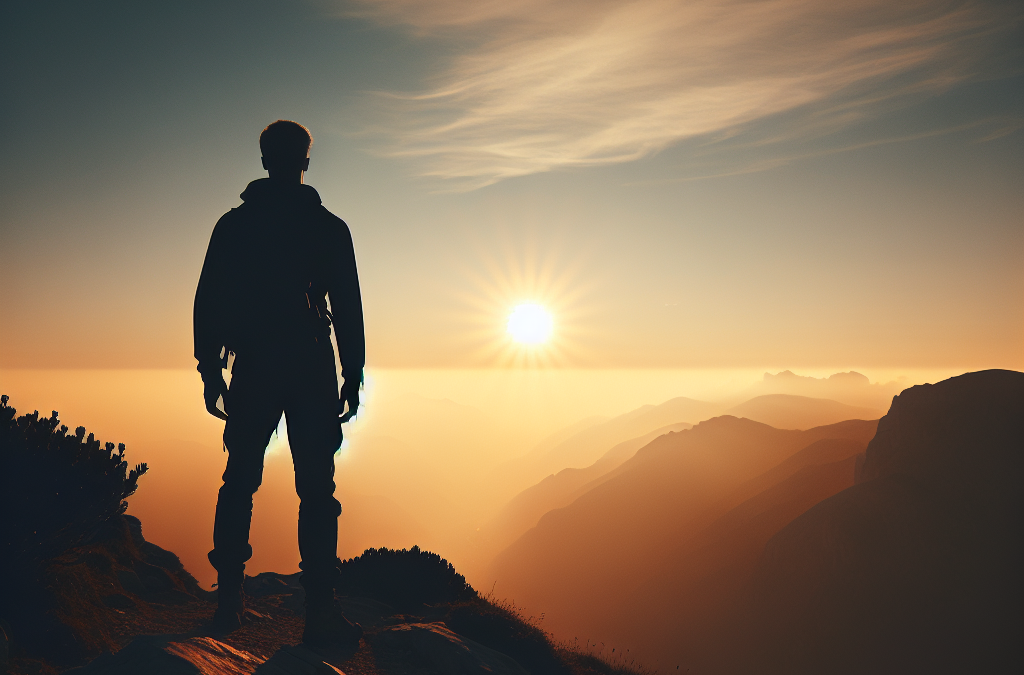Imagine this: A light breeze rustles the leaves around you as your boots crunch on the pathway beneath. You’re surrounded by the symphony of nature, feeling surprisingly at peace and invigorated at the same time. You’re alone, yet you’ve never felt more connected. This is the beauty of solo hiking. The essence of this article, “Solo Hiking: Independence on the trails,” encapsulates the unique thrill and tranquility of hiking alone, stripping you of your everyday chaos and distractions, leaving you with just the purity of nature, self-reflection, and the rhythm of your own breath.
The Appeal of Solo Hiking
Believe it or not, going out for a hike alone can provide a sense of joy and fulfillment like no other.
Understanding the allure of hiking alone
When you hike alone, you surround yourself with the splendor of nature, free from distractions, and fully soak in the experience on your terms. It gives you the chance to connect with the environment at your own pace, and truly immerse yourself in the serenity of the great outdoors.
The liberating feeling of independence while hiking
One key aspect of solo hiking that really draws people is the sense of independence it provides. You are your own leader, setting the pace, choosing the route, deciding where to rest and how long to stay. This freedom can be a truly powerful and liberating experience.
Personal growth through solitary exploration
Remember, when you hike alone, it’s not just a path in the woods you’re following. You’re also embarking on a journey of self-exploration and personal growth. In the silence of the trail, you’ll discover your abilities, push your boundaries, and learn to cherish your own company.
Benefits of Solo Hiking
Apart from the obvious reward of breathtaking views, solo hiking offers unexpected bonuses.
Enhancing self-reliance and problem-solving skills
When you’re out on the trail by yourself, it’s up to you to navigate the terrain, read the weather signs, and handle any unforeseen circumstances. This not only stimulates your problem-solving skills but also bolsters your self-reliance.
Promoting mental health and wellness
Hiking alone is an excellent way to clear your mind. It allows you to be introspective, reflective, or simply live in the moment, promoting mindfulness and relieving stress. Plus, of course, the physical benefits of hiking help keep you fit and healthy.
Opportunity for self-discovery and introspection
One of the major benefits of solo hiking is the personal insight it provides. You can explore not just the wilderness but also your inner self, learning more about your strengths, weaknesses, ambitions, fears, and dreams at every step.

Planning for a Successful Solo Hike
Preparation is key for a successful solo hike.
Choosing the right trail for your skills and experience
It’s important to choose a trail that suits your skills and experience. Research the trail beforehand, understand the terrain, grading, length, and any potential hazards to ensure that it’s within your capability.
Weather considerations and seasonal impacts
Weather plays a significant role in hiking, especially when you’re alone. Be sure to check forecasts before you set off to anticipate any adverse weather conditions. Similarly, take note of any seasonal changes that could impact the trail, like spring runoff or fall leaf cover.
Importance of informing someone about your hiking plan
One vital step in planning a solo hike is to never leave without informing someone about your plan. Let them know your trail, estimated time of return, and any other key details. It’s also a good idea to check in with them during rest stops if possible.
Important Skills for Solo Hiking
The skills needed for successful solo hiking go beyond just physical endurance.
Navigation and orienteering skills
A good sense of direction and the ability to read a map and compass are vital for any solo hiker. These skills can make the difference between a smooth journey and an unexpected adventure.
Basic first aid and survival skills
Knowing basic first aid and survival techniques can be extremely helpful, especially if you run into unexpected issues. Familiarize yourself with how to treat common injuries and illnesses that can happen on the trail.
Understanding how to pace yourself and listen to your body
Solo hiking is not a race. Understanding how to pace yourself to conserve energy and how to listen to your body’s signals are essential skills for any solo hiker.

Essential Gear for Solo Hiking
Selecting the right gear significantly affects your hiking experience.
Appropriate attire and footwear for different terrains
Choose hiking attire that can handle the terrain you’ll be hiking. This includes appropriate, snug-fitting footwear that provides good ankle support and grip. Your attire should be suited to the weather and absorbent, drying quickly to keep you comfortable and prevent chafing.
First aid essentials and survival gear
Ensure your hiking bag contains a first aid kit, survival gear such as a multipurpose knife, a torch, a working compass, a thermal blanket, fire starters, and enough food and water.
Importance of a reliable navigation tool
Whether you choose a map and compass or a GPS device, reliable navigation tools are a must. These provide information on your location, the trail ahead, and help to navigate difficult or confusing sections.
Safety Considerations for Solo Hiking
Importance of staying on marked trails
Straying from marked trails can lead to unnecessary risks. Stick to designated routes that have been assessed for safety and enjoy the hike within these boundaries.
Tips for encountering wildlife
Respect all wildlife and maintain a safe distance. Most animals fear humans and will keep their distance. Make your presence known and learn different strategies for various wildlife you may encounter on your trail.
How to handle emergency situations
Any emergency in the wilderness requires a calm mind, a clear plan, and the proper gear. Familiarize yourself with basic emergency procedures for common hiking mishaps such as injuries, getting lost, or encountering bad weather.
Overcoming Challenges and Solving Problems
Handling fatigue, discomfort, and mental hurdles
When you’re alone, the weight of the backpack isn’t the only thing you carry; you also shoulder the mental load of keeping yourself motivated. Remember why you are out there, take slow, deep breaths, and keep going.
Managing unexpected changes in weather or terrain
Sudden weather changes or unforeseen terrain obstacles are part of hiking. Learn to adapt, change your course when necessary and keep your spirits high.
What to do if you get lost
If you somehow manage to lose your way, stop and try to retrace your steps. Use your navigation tools to understand your current location and find your way back to the trail.
Maintaining Motivation on the Trail
Setting achievable goals for each hike
Goals keep us focused and motivated. Setting achievable benchmarks for your hike, like reaching a certain viewpoint or covering a specific distance, can motivate you.
Embracing solitude as a strength
Hiking alone means being comfortable in your own company. Learn to appreciate the solitude, and see it as a strength rather than a weakness.
Keeping morale high during challenging sections
When the hike gets tough, remember to take it step by step. Remind yourself of your capability and strength, enjoy the small victories, always remember to hydrate, and keep pushing forward.
Eco-responsibility While Solo Hiking
Adhering to Leave No Trace principles
When enjoying the great outdoors, always practice Leave No Trace principles – basically, leave nature the way you found it – for future generations to enjoy.
Importance of respecting wildlife and habitats
On your solo hike, you’re a visitor in the native habitats of many animals. Respect them and their homes. Do not disturb their natural behavior, keep a safe distance, and do not feed them.
Considerations for wildfires and other environmental hazards
Prevent wildfires by sticking to the marked trails, not making open fires, and properly disposing of your waste. Make sure you’re familiar with any local environmental hazards you may encounter on your hike and how to deal with them.
Post-hike Reflection and Recovery
Assessing personal performance and achievements
After finishing a solo hike, take time to reflect. Assess your performance, think about what you have learned, what challenges you overcame, and how you’ll improve next time.
Importance of good post-hike nutrition and rest
After a hike, your body needs good nutrition to recover. Hydrate properly and consume a nutritious meal. Don’t underestimate the importance of rest after a hike to help your muscles rejuvenate.
Reflection and lessons for future hikes
A solo hike is an exploration into yourself as much as it is an exploration of the wild. There’s always something to learn from each hike that you can carry into your next adventure. enjoy the journey, the solitude, the strength, and the wisdom that comes from hiking alone.

